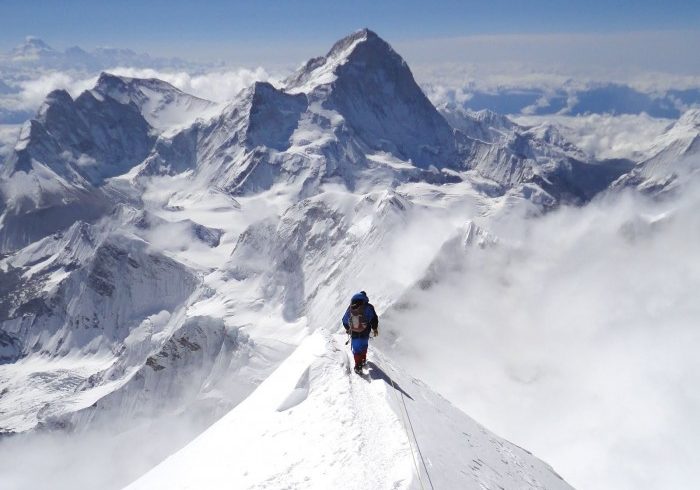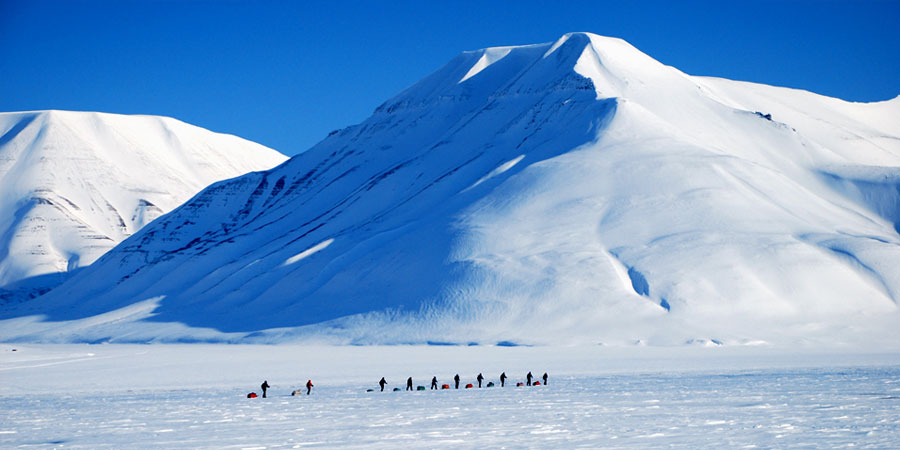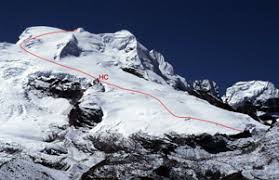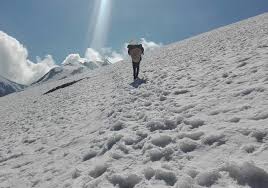Overview
Mera Peak Climbing in 19 days
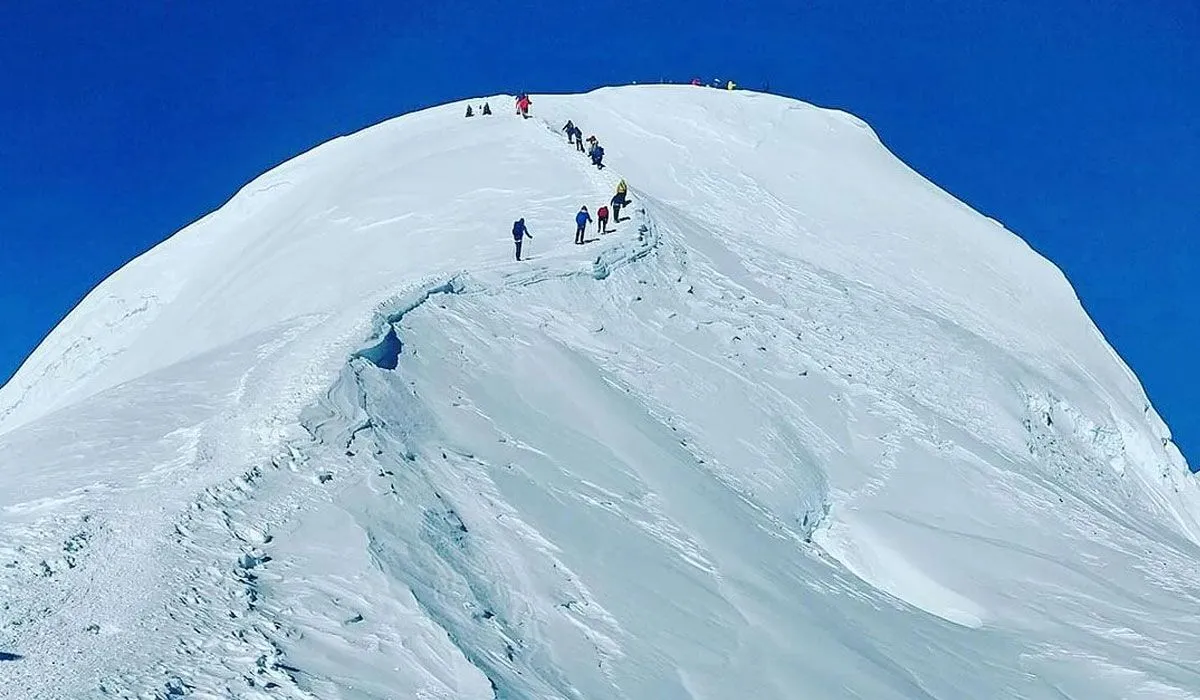
Elevation: 6,476 m
Prominence: 1,063 m
Mountain range: Himalayas, Mahalangur Himal
First ascenders: J. O. M. Roberts, Sen Tenzing
First ascent: May 20, 1953
Coordinates: 27°42′33″N 86°52′06″E / 27.70917°N 86.86833°E
Mera Peak Climbing takes you to Mera Peak, a spectacular free-standing mountain and one of the highest trekking peaks in the world. An expedition famous for its diverse experience to the climbers, Mera Peak climbing combines the pleasure of mountain trekking, rich Sherpa culture, and its heritage, as well as the exploration of the seldom, visited yet truly marvelous landscapes on the edge of Khumbu region. In a tough yet rewarding experience, trekkers pursue their dream of Mera Peak climbing by traversing through varieties of vegetation, sparsely inhabited Hinku valley and less visited sanctuary of Makalu Barun National Park, high passes and graze lands, small streams, lush and green hills, and valleys, glaciers and glacial streams and rocky terrain. Besides, the Sherpa settlements en route and beautiful views of Himalayas add beauty to this experience.
Mera Peak Climbing begins with a spectacular flight to Lukla over high hills and with the view of fascinating mountains beside spectacular landscapes. Trekking down from Lukla, we shall traverse through dense forest, traditional villages, and terraced hills and enjoy the view of Kongde Ri, Khatang and other peaks above 7000 meters to reach the settlement of chhatra la. Ahead in the trail we cross the pass of chhatra la and explore the rhododendron, pine and bamboo forests, trek and through steep trails to reach the vantage point of Hinku valley from where we march ahead along the ridge and to the summer settlement of Hinku Valley.
Ahead in this Mera Peak Climbing, we shall pay the visit to the 200-year-old Lungsumgba Gompa we continue ahead to summer grazing area of Tangnag before walking on the glacial moraines to the snout of glaciers near Khare. Navigating through the boulder-strewn and steep trail we reach to the base camp of Mera Peak and after preparation, climbers reach to summit of the peak via High Camp. The magnificent views of majestic Everest, Cho Oyu, Lhotse, Makalu, Ama Dablam, Kanchenjunga, and several other peaks are visible from the summit of Mera Peak. After accomplishing this feat in our Mera Peak Climbing, we shall gradually follow the trail back to Lukla and then to Kathmandu to complete this adventure.
Mera Peak Climbing is a challenging pursuit to the highest trekking peak in Nepal and requires the climbers to have basic experience of ice ax and crampons, and of course proper physical fitness enough to pursue a strenuous walk and peak climbing. September to December and March to May are the best season for Mera Peak climbing. Get our professional service with experienced climbing guides, carefully planned itinerary with sufficient acclimatization days and comfortable accommodation as possible in the field.
ACCOMMODATION
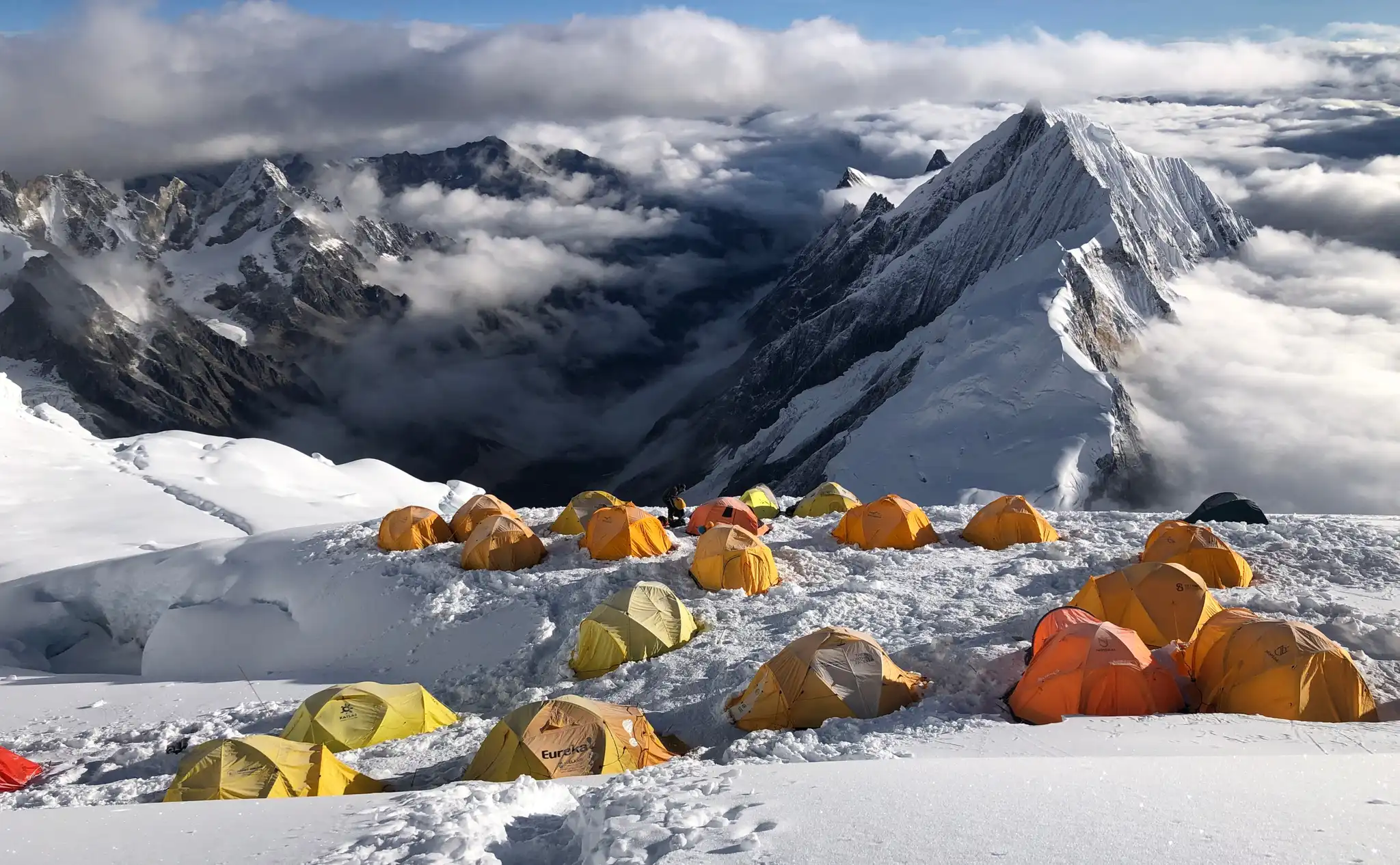
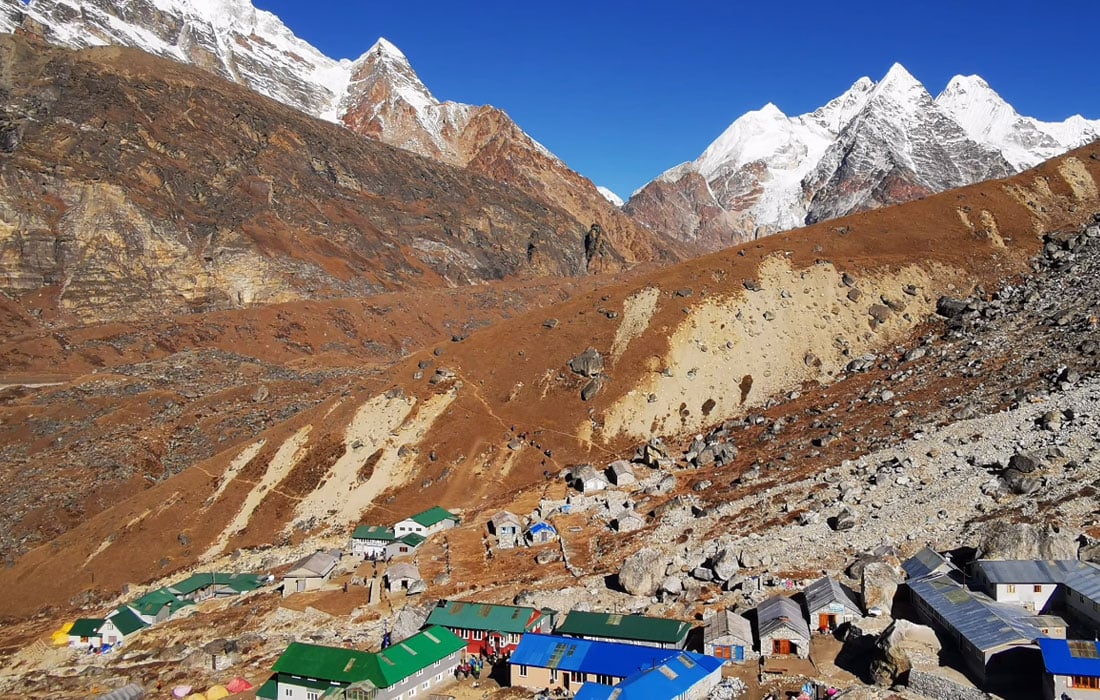
DURING TREKKING TIME IN MERA REGION
We will be staying at 3-star hotel in Kathmandu (2 nights), standard tea houses during trekking (9 nights) and tents when climbing (2 nights). Most tea house accommodations will only have shared toilet facilities. For tent accommodations, In climbing sections, toilet facilities will be provided with necessary natural preservation. All accommodations are on twin-shared basis. However, a single room will be provided on request and by paying a single supplement of USD 350. Also, understand that there are several places that do not allow single room accommodation. On paying single supplement, you will get a single room in Kathmandu and lukla but not in the mountains.
MEALS
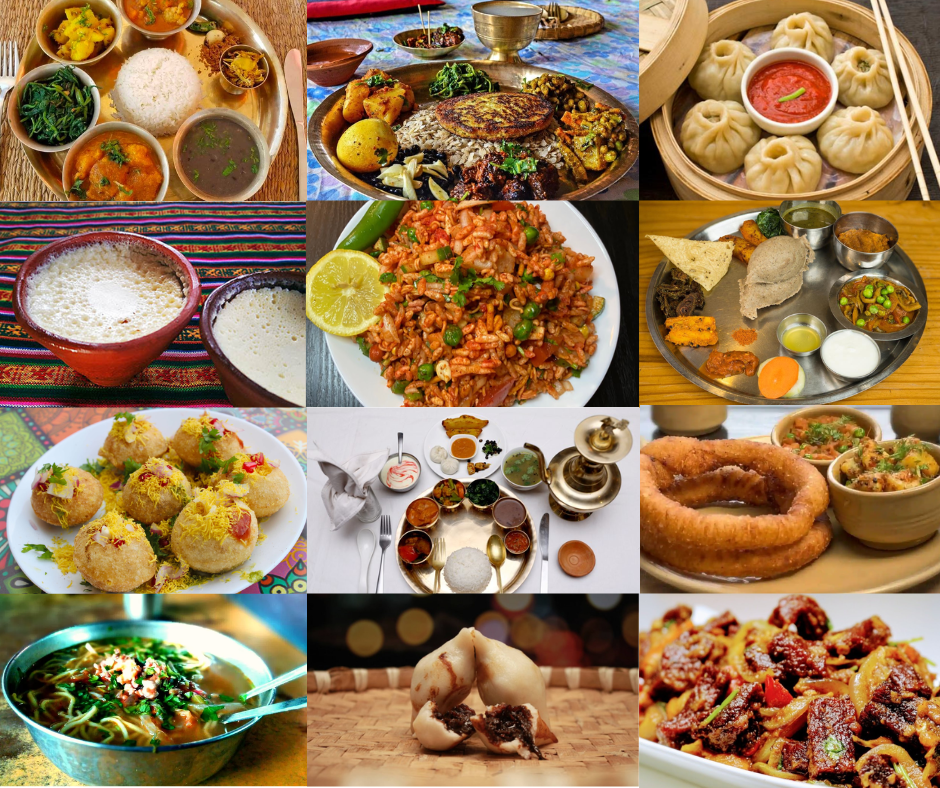
During our Mera Peak Expedition, we can enjoy traditional Nepali, Tibetan, Indian and the more common continental cuisines. A welcome dinner, a farewell dinner and breakfast will be provided during your stay in Kathmandu. During trekking/climbing, breakfast will be taken in the same place we stay the night. Similar arrangements can also be made for dinner. Lunch will be taken en route to the next destination. During climbing session, hygienic, freshly-cooked food will be provided.
PHYSICAL CONDITION & EXPERIENCE REQUIREMENTS

Mera Peak is not a technical peak but you will still require a good stamina to summit it. No prior climbing experience is required; however, having some knowledge on using climbing equipment will still be an asset. You will also need to have ample high altitude trekking experience. There will also be a pre -ice climbing training for participants in the Mera Peak base camp/Khare. The training will mostly be about using climbing gears such as ropes, ice pick, harness, and crampons.
TEAM COMPOSITION
Trekking : While trekking, we will provide you a fully trained, English speaking, experienced trekking guide. Every 4 members are entitled to 1 assistant guide, also 1 porter for every two members to carry the luggage.
Climbing : We will provide you a licensed, English speaking, veteran climbing guide. There is also the provision of assistant guides, for a group size of 2-4 people; there will be 1 main guide and 1 assistant guide. In a group size of 5-8 people, there will be 1 main guide and 2 assistant guides. Finally with a group of 9-12 people, we shall be offering you 1 main guide and 3 assistant guides. Other staff members will include one experienced cook and necessary Sherpa staff, mostly assistants who will assist in setting up camps during the climb.
TRIP START DADE
We will organize this trip on the dates requested by you. Please contact us for your customized departure date.
BEST TIME TO TRAVEL

AUTUMN ( SEPTEMBER - NOVEMBER)
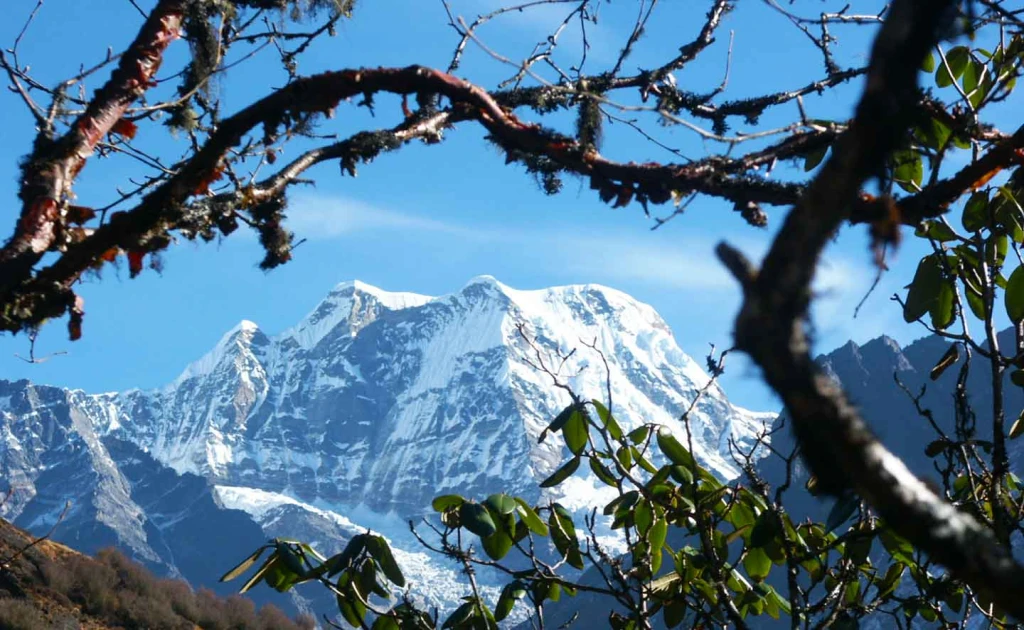
SPRING ( MARCH - MAY)
Autumn (Sept. to Nov.) and Spring (March to May) are the best seasons for trekking in the Annapurna region. The weather is sunny and warm with outstanding views. If you wish to avoid crowds and enjoy some alone time with nature, then taking this trip during winter (Dec., Jan., Feb.) could also be an option. However, the temperature during winter could be harsh for most guests. Trekking in the summer or monsoon season (June to Aug.) will be affected by rain but the summer trek could be a boon for a keen botanist.
COST EXCLUDE
- Air Fare: International flight airfare (from and to Kathmandu).
- Nepal entry Visa fee: Nepali Visa fee $60 USD per person for 30 days and to be applied for 60 days $120 USD.
- Lunch & Dinner: Lunch & dinner in during the stay in Kathmandu (also in case of early return from Trekking / Expedition than the scheduled itinerary).
- Extra night in Kathmandu: Extra nights’ accommodation in Kathmandu. In case of early arrival or late departure, early return from Trekking / Expedition (due to any reason) than the scheduled itinerary.
- Insurance: Travel and high-altitude insurance, accident, helicopter medical & emergency evacuation. *Mandatory
- Rescue Evacuation: Medical and emergency rescue evacuation cost if required. (Rescue, Repatriation, Helicopter, Medication, Medical Tests and Hospitalization costs.)
- Personal Expenses: Telephone, Internet, Toiletries, battery recharge, hot shower, laundry, any Alcoholic beverages (during the trek and in Kathmandu but we will serve soft drinks for members in base camp).
- Personal Equipment: Clothing, Packing Items or Bags, Personal Medical Kit, Personal Trekking /Climbing Gears.
- Toiletries: Soaps, shampoos, toilet and tissue papers, toothpaste, and other items used to keep yourself clean.
- Filming: Special Filming, Camera and Drone permit fee.
- Internet Service: Not included during the trek.
- $25 USD for extra porter per day (If extra porter demanded).
- Summit Bonus: Summit bonus for climbing Sherpa.
- Tips: Tips for Base camp/ High Camp and other staffs.
- Extra: Any other services or activities, which are not mentioned in the itinerary.
- Any other item not listed in “Cost Includes” section

